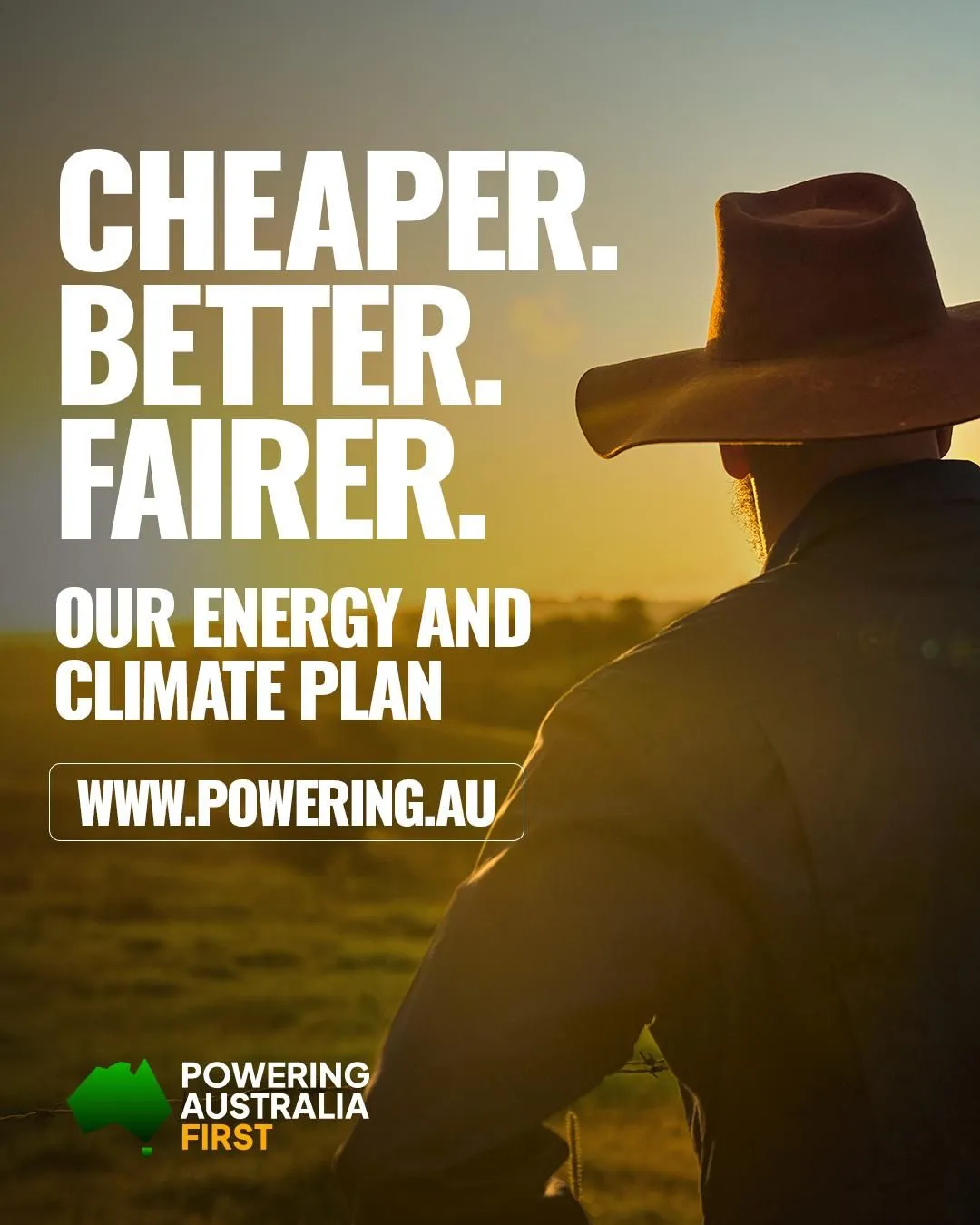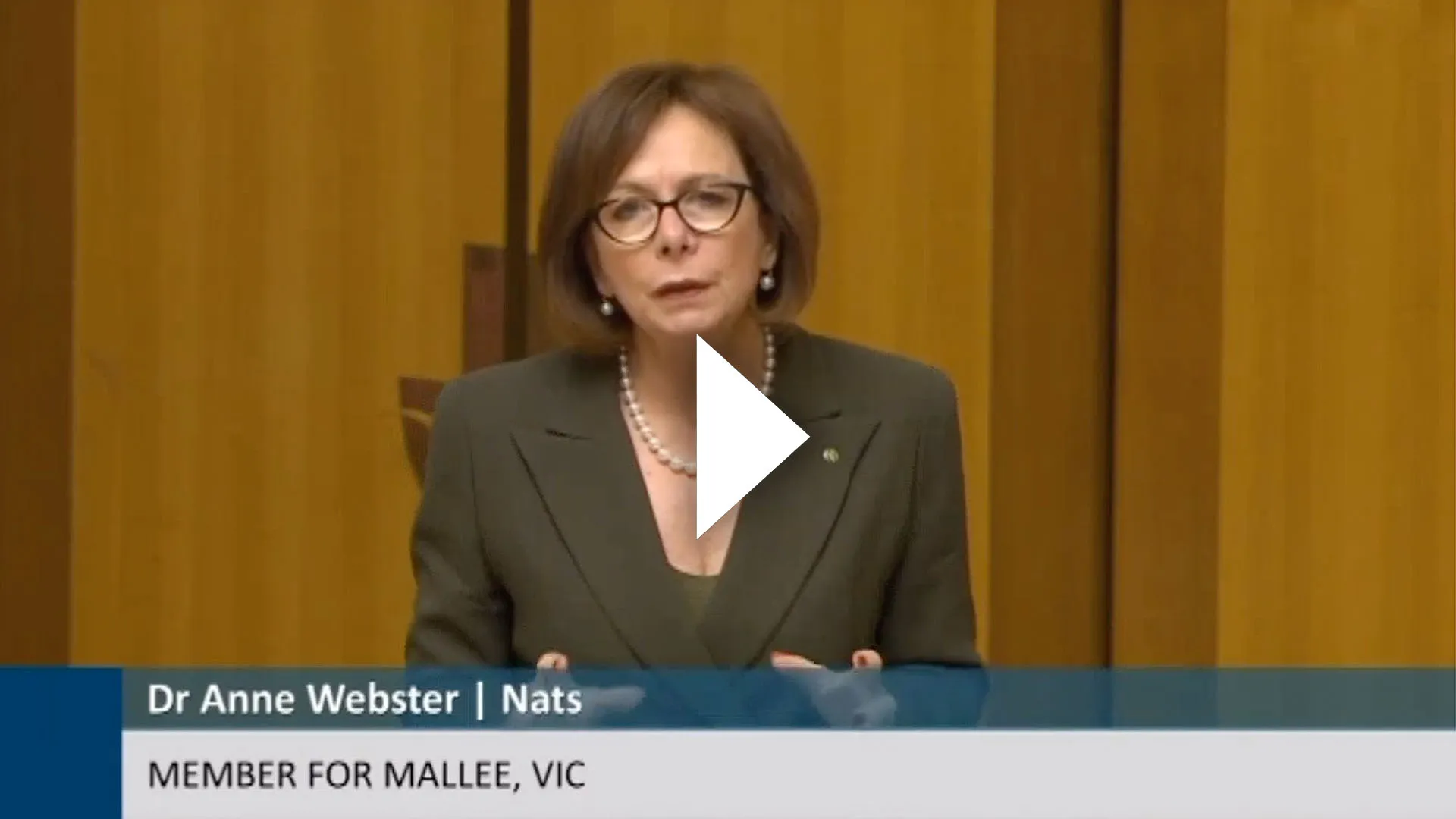Interview with Wade Stephens, ABC Mildura, Swan Hill and Wimmera - Transcript - Sunday 3 November 2025

Shadow Minister for Regional Development, Local Government and Territories - Shadow Minister for Regional Communications - Transcript - Interview Wade Stephens, ABC - 3 November 2025
DR ANNE WEBSTER MP
SHADOW MINISTER FOR REGIONAL DEVELOPMENT, LOCAL GOVERNMENT AND TERRITORIES
SHADOW MINISTER FOR REGIONAL COMMUNICATIONS
FEDERAL MEMBER FOR MALLEE
TRANSCRIPT
TOPICS: The Nationals' plan for cheaper, better, fairer energy policy, Net Zero, Paris Agreement, nuclear energy
WEBSTER
OK, so probably what you've seen is that yesterday the (Nationals) Federal Council met, but that's people, members of the Council from all across Australia, who voted unanimously to drop net zero. met again today on Sunday for several hours we went through a process really probably the culmination of a long process of looking at all the data looking at the research finding out what's really been happening under the latest net zero and all renewables approach. Where we arrived at is that we would walk away - we want a common-sense policy for energy and for emissions reduction. So we're not walking away from emissions reductions, but we are going to a better and fairer power energy supply into the future, and we will be matching OECD statistics. So where the OECD countries, who are equivalent in terms of general wealth, we will be matching where they are at the moment. Under Labor's policy, we are about double what OECD emissions reductions are occurring - and it's hurting us out in the regions. It's hurting agriculture. It's hurting the environment. And it's certainly hurting people in their hip pocket when they're paying for their energy bills.
STEPHENS
So are the main considerations that the emissions goal currently being pushed by Labor is being pushed ahead of living conditions in regional Australia?
WEBSTER
Well, it's living conditions for all Australians. The current reckless path that Labor are taking will cost the country around $7 to $9 trillion, or $250,000 per Australian. We believe that is extreme and unnecessary, and we want to see cheaper power and to look at all varieties of power, so when we're looking at investment, we want to open up gas and to coal. We're not taking coal off the table. Loy Yang A and B, for example, can go into the 2040s. We want to see people's prices on their energy bills come down and if we continue the path that we're on, what we've seen globally is that prices will continue to rise. People can't afford their energy bills now.
STEPHENS
And how do you think voters within the Mallee electorate are going to react to the National Party's stance on net zero?
WEBSTER
Well, I have done another Mallee's Biggest Survey recently, which was June-July, and those results have now come in across Mallee's five and a half thousand people took the time to tell me what they thought about things. One of those subjects was net zero, and I can tell you that it's well into the 60 per cent, 65 per cent I think it was, I haven't got it in front of me, of views in Mallee that we should walk away from net zero and also Paris. We're not walking away from Paris, the 2005 levels, Australia is already streaking ahead. We want to continue to do that, but Mallee residents have certainly made clear to me that they firstly don't support net zero in the majority, and secondly, almost 90 per cent say they don't want to pay a cent, not a cent, towards net zero. Well, it's already costing people significantly. Labor went to the election saying that 97 times, as you know, that people's power bills would come down to $275. They haven't. They've actually gone up around $1,300, and some, obviously, depending on your power use, even more than that. So people are hurting. They want their power bills to come down. We're hearing that loud and clear. We want a cheaper, better and fairer energy system.
STEPHENS
Just finally, within this energy space, The Nationals did go to the federal election with a nuclear energy policy. Has there been any shifting in the nuclear energy policy now that net zero has been abandoned by the party?
WEBSTER
We want to see the moratorium lifted from nuclear. We want the market to play its part. That's a discussion further down the track. Obviously, we're not in power. So we will be working over the next two years before the election. We will be developing all of the policies that relate to this principled position, which is common sense and that everyday Australians value.



